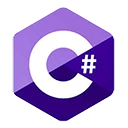Classes and objects are the building blocks of C# programming. In this comprehensive guide, you'll learn the fundamentals of classes and objects, how to define and use them, and their significance in your code.
What is a Class?
A class is a blueprint for creating objects in C#. It defines the structure and behavior of objects that belong to that class. Classes are used to model real-world entities, abstract data, and encapsulate related data and methods into a single unit.
Defining a Class
To define a class, you need to specify its name and the attributes and methods it contains. Here's the basic syntax:
access_modifier class Classname
{
// Attributes (data members)
data_type attribute1;
data_type attribute2; // Methods
return_type MethodName(parameters)
{
// Method body
// Code to perform the task
}
}
Example:
public class Person
{
// Attributes
public string FirstName;
public string LastName;
// Method
public void Greet()
{
Console.WriteLine($"Hello, {FirstName} {LastName}!");
}
}
Creating Objects
Objects are instances of classes. To create an object of a class, you use the new keyword followed by the class name and parentheses:
Classname objectName = new Classname();
Example:
Person person1 = new Person();
person1.FirstName = "John";
person1.LastName = "Doe";
person1.Greet();
Accessing Attributes and Methods
You can access the attributes and methods of an object using the dot notation:
objectName.attribute1 = value;
objectName.methodName();
Example:
person1.FirstName = "Alice";
person1.Greet();
Constructors
Constructors are special methods used to initialize objects when they are created. They have the same name as the class and do not have a return type. You can create constructors to set default values and perform any necessary setup.
Example:
public class Person
{
public string FirstName;
public string LastName;
// Constructor
public Person(string firstName, string lastName)
{
FirstName = firstName;
LastName = lastName;
} public void Greet()
{
Console.WriteLine($"Hello, {FirstName} {LastName}!");
}
}
Person person2 = new Person("Sarah", "Smith");
person2.Greet();
Conclusion
Classes and objects are fundamental concepts in C# programming. You've learned how to define classes, create objects, and access their attributes and methods. These are essential for modeling and manipulating data in your C# applications.
Practice using classes and objects in your C# programs to create structured and reusable code. As you continue your programming journey, you'll explore more advanced topics like inheritance, encapsulation, and polymorphism to enhance your coding skills.

